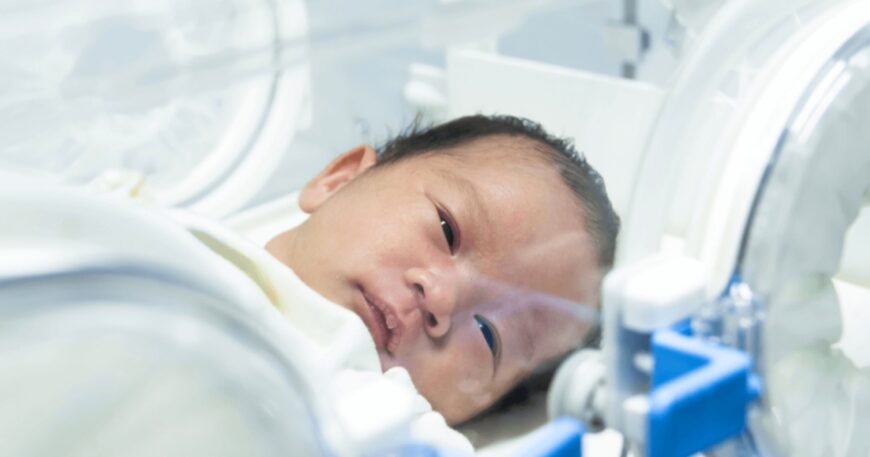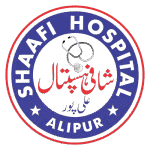
What Happens to a Newborn Baby in the Hospital Nursery? A Day-by-Day Look for New Parents
The first few days after you welcome your baby bring joy, love, and lots of questions. One of the most common concerns for new parents is understanding what happens to their newborn baby in hospital nursery while they rest or recover. At Shaafi Hospital Alipur, we believe in full transparency and parental comfort. This blog offers a day-by-day breakdown of what to expect in a hospital nursery.
Knowing what goes on behind those nursery doors can help ease your anxiety and allow you to enjoy the early bonding moments more fully.
Day 1: Immediate Newborn Assessments and First Bonding
Right after birth, your baby is handed over to the trained medical staff. The baby is gently cleaned, dried, and then taken for initial health checks. In the newborn baby nurser, professionals check your baby’s:
- Weight and height
- Temperature
- Breathing and heart rate
- Skin color and muscle tone
The Apgar score is also taken at one and five minutes after birth to quickly assess your baby’s overall condition. These steps are crucial to identify if the baby needs immediate support.
If both the mother and baby are stable, then hospitals like Shaafi usually encourage skin-to-skin contact as early as possible. However, if any concerns arise, the medical team may place the baby in the nursery for a few hours to monitor their condition and ensure everything is going smoothly. In such cases, this brief observation allows healthcare professionals to closely track the baby’s early adjustment. Afterward, once the baby is doing well, the staff brings them back for bonding and breastfeeding with the mother.
Day 2: Monitoring, Feeding, and Skin Care
By the second day, your newborn baby in hospital nursery is being monitored for consistent temperature, feeding behavior, and elimination (urine and stool). Most babies begin breastfeeding or formula feeding every 2 to 3 hours. The staff supports mothers with latching techniques and schedules to help establish a feeding routine.
During this time, nurses also begin teaching parents how to take care of newborn baby skin. Your baby’s skin is extremely sensitive. Most hospitals postpone bathing until after 24 hours and prefer sponge cleaning during this time. Nurses document any redness, flakiness, or birthmarks, and pediatricians give specific instructions for skin care.
Day 3: Routine Tests and Family Education
On the third day, several standard tests are carried out. These may include:
- Hearing screening
- Jaundice check
- Blood test for metabolic conditions
- Oxygen saturation monitoring
The medical team also watches your baby for signs of dehydration, poor weight gain, or infections. Meanwhile, staff continue to guide you on essential newborn baby care tips—how to burp your baby, how to clean the umbilical cord, and diapering techniques.
At Shaafi Hospital Alipur, our nursery team also shares a basic newborn baby care products list so you’re better prepared when you go home. This list includes:
- Diapers and wipes
- Baby-friendly cleanser and lotion
- Swaddle blankets
- Thermometer
- Cotton clothes and mittens
All of these are essential for continuing safe newborn care at home.
Day 4: Pediatric Rounds and Emotional Preparation
If you’re still in the hospital on Day 4, a pediatrician will perform a full check-up on your baby. This includes reflex testing, further skin examination, and feeding assessments. Nurses may also begin preparing parents emotionally and logistically for discharge.
This is the time to ask questions about feeding schedules, sleep patterns, or concerns about your baby’s behavior. Our staff at Shaafi Alipur encourages every parent to stay involved in nursery activities, watch how diaper changes are done, and understand how we swaddle or soothe the baby.
Some hospitals also allow for brief time in montessori nursery newborn setups, which focus on a calm, natural environment that encourages sensory development even at this early age. While this isn’t standard in all hospitals, elements of it—like soft lighting and peaceful surroundings—are sometimes adopted in modern hospital nurseries.
Day 5 and Discharge: Transitioning from Nursery to Home
Most mothers and babies leave the hospital within 2 to 5 days, depending on the delivery type and overall health. On the day of discharge, the medical team performs one final nursery check-up for your baby. They hand over medical records, vaccination notes, and discharge instructions directly to the parents.
Before heading home, parents receive one-on-one guidance on:
- Umbilical cord care
- Signs of jaundice or infection
- Feeding positions and milk quantity
- What to monitor at home
By this point, the newborn baby in hospital nursery has been well-observed, and the hospital ensures you’re confident to take over complete care.
What Makes Hospital Nurseries Important?
Hospital nurseries serve multiple purposes. They offer a safe, sterile environment for babies to be monitored, and they provide much-needed support to mothers recovering from childbirth. The trained staff also helps detect any early signs of concern and offers emotional and educational support to new parents.
At Shaafi Hospital Alipur, our newborn baby nurser includes 24/7 monitoring, advanced equipment, and compassionate pediatric nurses to make sure your baby is safe while you rest and recover.
Benefits of Modern Nursery Practices
Modern hospital nurseries are evolving. While the traditional view was of a closed room filled with rows of cribs, parental bonding and health education are now being integrated into new models.education. Practices inspired by montessori nursery newborn methods emphasize peaceful lighting, minimal medical noise, and gentle care routines.
These small details can positively impact newborn stress levels and promote better sleep. Research by the Journal of Perinatal & Neonatal Nursing suggests that babies cared for in quieter, more responsive environments show improved feeding and early growth behaviors.
Common Myths About Hospital Nurseries
Some parents worry that nursery care may reduce bonding. However, most hospitals now support “rooming in” where babies stay with their mothers, only going to the nursery when necessary. Your involvement is always encouraged.
Others believe that nursery stays delay breastfeeding. On the contrary, hospitals like Shaafi ensure every feeding opportunity is supported whether the baby is in your arms or just returned from the nursery.
FAQs
Q1: Will I be separated from my baby after birth?
Only briefly, and only if necessary. Skin-to-skin contact is encouraged as soon as possible.
Q2: What does the nursery staff monitor?
Breathing, temperature, feeding, urination, bowel movements, and skin conditions.
Q3: Can I bring my own products for my baby?
Yes, but hospitals will also provide essentials. You’ll receive a newborn baby care products list at discharge.
Q4: How is baby skin care handled in the nursery?
With gentle products, no perfumes, and soft cloths. Nurses show you how to take care of newborn baby skin at home too.
Q5: Are hospital nurseries hygienic?
Absolutely. Nurseries follow strict hygiene protocols to prevent infections.
Final Thoughts
The hospital team cares for your newborn in the nursery with attention, expertise, and compassion. From the moment of birth to the day of discharge, they take every step to support your baby’s well-being and give you peace of mind. These early days in your baby’s life are precious, and understanding what happens behind the scenes helps you enjoy each moment more fully.
Whether it’s the gentle advice on newborn baby care, assistance with baby skin care, or learning about the tools and techniques used, hospitals like Shaafi Hospital Alipur are here to support you every step of the way.
Sources:
- World Health Organization (WHO) – Essential Newborn Care Guidelines
- American Academy of Pediatrics (AAP) – Hospital Newborn Care
- Journal of Perinatal & Neonatal Nursing – Nursery Design and Newborn Outcomes
Call to Action (CTA):
Want the best start for your newborn?
Trust the expert care and warm environment of the nursery team at Shaafi Hospital Alipur. From birth to discharge, we’re here to support your baby’s health and your peace of mind.
